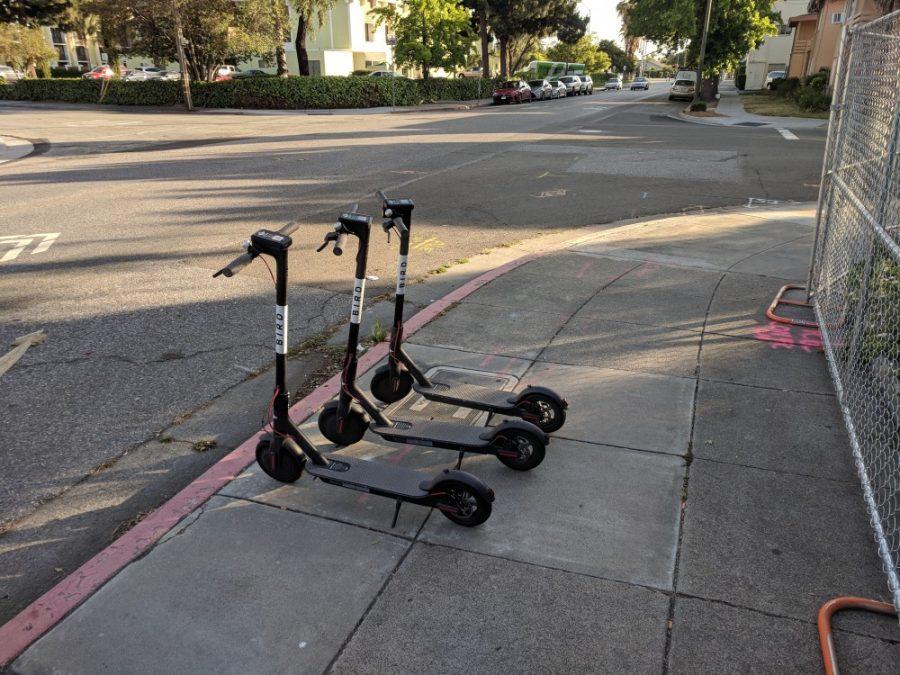UA Parking and Transportation Services recently announced a ban on all electric scooters on campus that went into effect Oct. 24. This recent ban on electric scooters has raised many questions as well as posed new issues to UA students that regularly use electric scooters to commute around campus.
Gail Nazarenko, UA Parking and Transportation Services interim executive director, reflects on the transportation safety issues and concerns on campus.
“The UA has safety concerns for riders and pedestrians since the scooters can reach speeds of up to 15 mph,” Nazarenko said. “There are also concerns about the scooters limiting accessibility around campus.”
The issue of electric scooters creating hazards for traveling around campus was featured in the official press release. The goal is to mitigate e-scooters from blocking doorways, walkways and other campus paths. Additionally, we do not want e-scooters to be brought into campus buildings, which would pose safety and accessibility concerns, according to the press release.
Nazarenko stressed once again about the limitations and dangers electric scooters can pose to those on campus, specifically to disabled students.
RELATED: Drive, bike or ride: UA transportation guide
“Since riders can leave scooters wherever they stop, UA has safety concerns about the scooters limiting accessibility,” Nazarenko said.
Mia Seannell, a freshman architecture student, has been directly affected by the recent ban and shared her struggles from it.
“I’ll be really upset. This is all that I have; I don’t have a bike or anything,” Seannell said. “It [the scooter] goes fast, but only as fast as a bike … I’m in more control of this thing than a bike, I feel.”
Seannell also purchased the scooter earlier this year for around five hundred dollars, which can be a large financial setback for any student.
For students that have purchased a scooter recently will no longer be able to use them, which could potentially be a financial burden on finding another method of transportation, and if the scooter is found illegally parked or abandoned, owners can either have the scooter impounded or be fined, according to the press release.
RELATED: Car rental app designed for college students hits the market
“I don’t know what I would do without it,” Seannell said. “I guess I would just have to park it somewhere and leave it there. It’s disappointing.”
As it stands, many other campuses, in particular Arizona State University, recently banned electric scooters and Bird and Lime electric scooter services on campus.
While this ban may negatively impact some UA students, Nazarenko mentioned that the UA and the City of Tucson are currently working toward a long-term solution for the scooters.
The City of Tucson is currently in the process of making rules for an electric scooter pilot program, which the UA will in turn use the data from to come to a final decision of whether or not electric scooters will be banned from campus in the future, according to the City of Tucson website.
For students that will need to find other methods of transportation around campus, services such as the Cat Tran can provide safe transport around campus for no cost. Cat Tran schedules and real-time tracking can be found at parking.arizona.edu as well as through the TransLoc Rider and the UA Mobile apps.
Follow Connor Fries on Twitter









